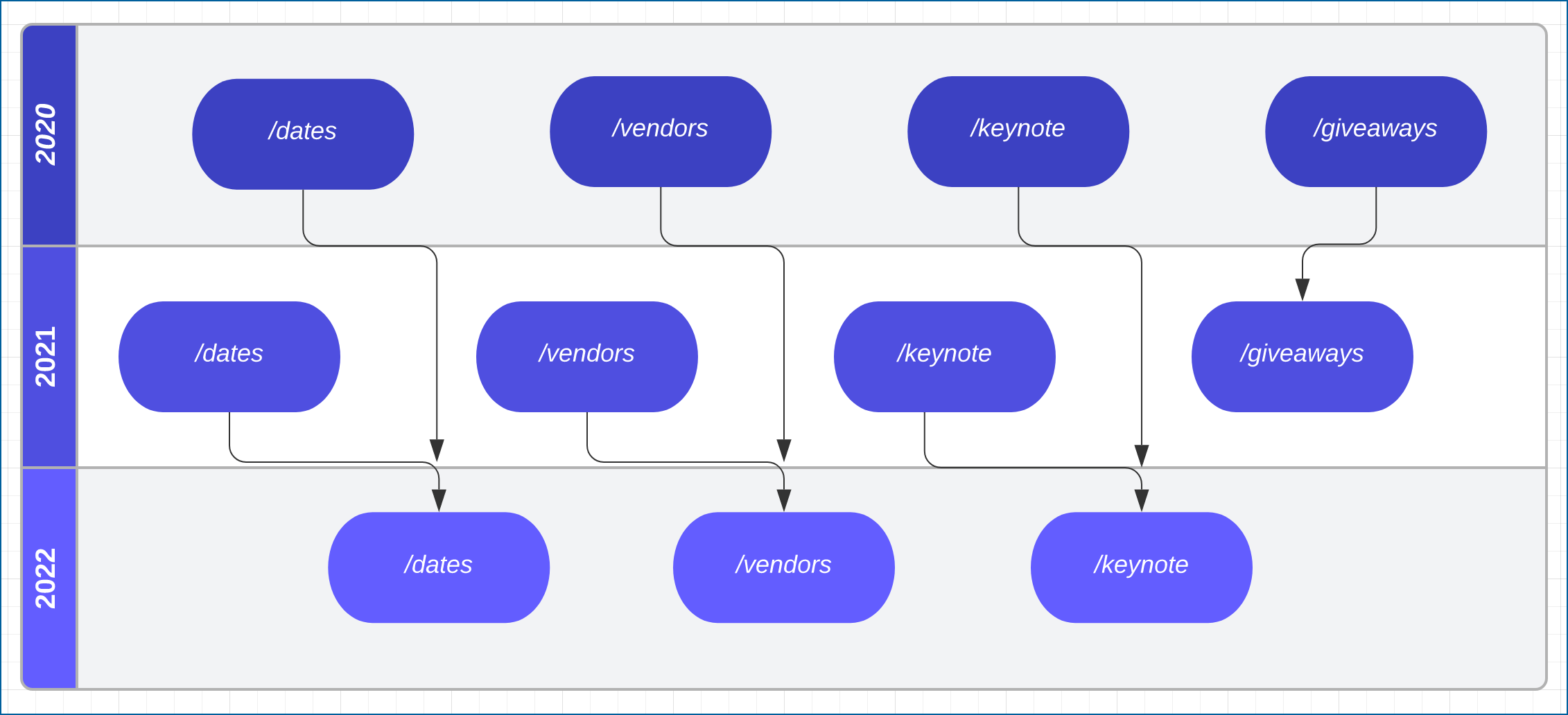Imagine a website of a recurring event.
The URL structure is:
http://example.org/2022/- subdirectory about the 2022 edition of the eventhttp://example.org/2021/- subdirectory about the 2021 edition of the event- …
http://example.org/- a 302 HTTP redirect to the current year edition, e.g.http://example.org/2022/
This URL strategy allows the users to get to the current year edition anytime just
browsing to http://example.org, and to read about the past editions browsing to
the other year's subdirectories.
The problem comes when search engines are involved. When I search "Example Org"
through a search engine, I would expect to get as first result the freshest edition
of the event, namely http://example.org/2022, or http://example.org.
Unfortunately, search engines prefer to show first several past editions, because such content is usually better ranked since it has longer texts, more pages, and across the web there are more links to those rather than to the new edition's ones.
How can I tell search engines that when it comes to my domain I want them to
give priority to a certain subdirectory (e.g. http://example.org/2022)?

